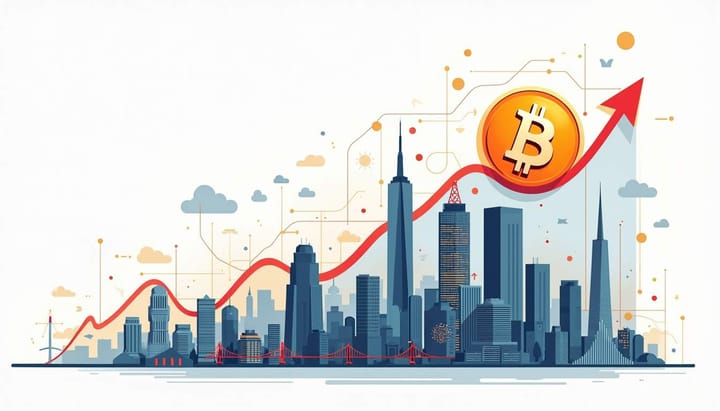Bitcoin tops $50,000 for the first time since December 21, 2017, but is this time different?

Bitcoin's (BTC) surge to $50,000 on Monday is in stark contrast to just two years ago, as institutional demand surges, interest rates are likely to reverse, and bitcoin is about to be halved, creating scarcity. Cointelegraph reported today. The last time bitcoin hit $50,000 was in December 2021, according to the data. At the time, the cryptocurrency was on the verge of collapsing into a prolonged bear market marked by 11 consecutive U.S. interest rate hikes, the collapse of several prominent crypto institutions and an exodus of retail investors.
The last time #BTC was at $50,000:
— Mitchell 🇺🇸🚀 (@MitchellHODL) February 12, 2024
- >50% of supply held by lettuce hands
- Terra/Luna running ponzi
- FTX selling paper BTC
- GBTC premium buyers getting rekt
- Precipice of fastest rate hike in history
- Super Bowl "crypto" ads#BTC at $50,000 today:
- 70% of supply held by… pic.twitter.com/yL4ZdiFyzJ
bloc
However, Josh Gilbert, market analyst at eToro, told Cointelegraph that this time around, macro conditions are increasingly favorable for risky assets like bitcoin. "In 2024, the Fed is planning four or five cuts. And the fourth bitcoin halving will increase the scarcity of the asset, and there are bitcoin ETFs that have already attracted billions of dollars in inflows within weeks of launch."
Gilbert explained that the first major catalyst that many investors are looking forward to is the upcoming bitcoin halving. The halving is scheduled for April, when bitcoin mining rewards will be halved. It is widely seen as a bullish catalyst for the price of BTC in the long term. Gilbert said positive sentiment is also building around the performance of bitcoin ETFs, giving the market confidence that institutions are buying bitcoin at an increasing rate.
According to a Feb. 12 report from Coinshares, the Spot Bitcoin ETF saw a total of $1.1 billion in inflows last week, the largest seven-day inflow period since the ETF launched on Jan. 11. Meanwhile, crypto market analyst Will Clemente said that individual interest remains low, which could indicate a more sustainable base for growth in the broader market.

Data from Google Trends shows that in December 2021, interest in the search term "bitcoin" was at 39 points. Currently, interest in bitcoin is only at 19, suggesting a relatively low level of personal interest in the asset.


